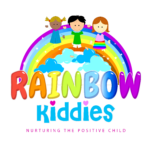
Obsessive-compulsive disorder (OCD) is a serious mental illness that can be disabling in the long term. If you’re concerned that you or your child, or anyone you know might have OCD, then please watch this podcast. This podcast will help you learn about the other conditions that are related to OCD. We have also shared a couple of self-help resources which will help you understand more about OCD and also help yourself to an extent. Nevertheless, remember that getting professional help is very important since this disorder can be disabling if left untreated for a long period of time. In addition, with effective treatment, obsessive compulsive disorder can be treated and managed successfully.
Thank you for listening to this podcast!
Watch Part 4 with video on YouTube.
Watch Part 1, Part 2 and Part 3 also on YouTube.
Few More Quick Facts on OCD
Obsessive-compulsive disorder (OCD) is an anxiety disorder that can happen in children and adults. It is characterized by obsessions which increase anxiety; and by compulsions which decrease anxiety temporarily.
Firstly, obsessions are intrusive thoughts (ideas, images, or impulses) that repeatedly enter a person’s mind against their will. These further generate anxiety and are difficult to dismiss. On the other hand, compulsions or rituals are repetitive acts that are performed to reduce this anxiety, but the relief is only temporary. Besides, engaging in these compulsions brings no pleasure. Also, they tend to be excessive and not realistically related to the problem they intend to fix. Later the rituals may become more automatic and increase anxiety. Moreover, psychological theories of OCD suggest that ritualizing maintains the problem by preventing habituation to the anxiety and by not letting the child face their fears.
Obsessive-compulsive disorder usually includes both obsessions and compulsions. But it is also possible to have only either of these symptoms. The child may or may not realize that their obsessions and compulsions are excessive or unreasonable, but they take up a great deal of time. They gradually start to interfere with their daily routine and thereby, functioning in social or school settings.
